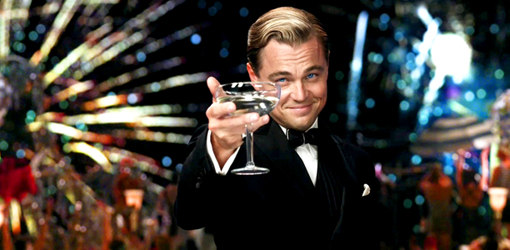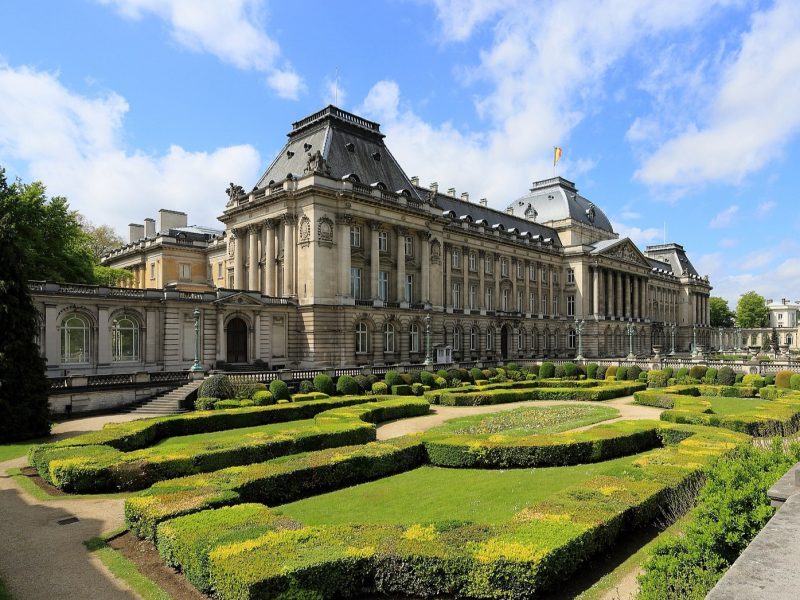
Leonardo DiCaprio shines as Gatsby, but he’s trapped in a mediocre film.
F. Scott Fitzgerald’s The Great Gatsby might be the most perfect novel ever written. Now that doesn’t make it the best — not by a significant margin — but it’s brief enough and so meticulously crafted that every word feels perfectly chosen, every sentence perfectly balanced. There isn’t a comma out of place.
Baz Luhrmann’s (Australia) adaptation of The Great Gatsby is far from perfect. It’s loud, messy, garish and desperately unsubtle. With its anachronistic pop music, deeply unnecessary 3-D visuals and the flashy, hectic style of a late-’90s music video, it’s probably the last adaptation Fitzgerald would want or expect.
It’s also kind of awesome. I don’t want to oversell it — the film stumbles more often than it succeeds, and purists should avoid it like the plague — but no one could accuse it of being a bloodless CliffsNotes adaptation of a dusty old tome. It’s ambitious, hot-blooded and the product of an idiosyncratic personal vision.
That’s not to say Luhrmann’s vision syncs particularly well with Fitzgerald’s. Fitzgerald’s Gatsby is notable for how distant he remains even when narrator Nick Carraway becomes his close confidant and learns the secrets of his origin. Gatsby is fundamentally unknowable, a cipher solvable by no one, least of all himself. He cloaks himself in profligacy, throwing lavish parties no one is invited to but everyone attends, but this only serves to underscore the loneliness of his muted tragedy.
Fitzgerald continually holds Gatsby just out of focus, and his mystery only amplifies his magnetism. Luhrmann, on the other hand, keeps Gatsby squarely in close-up. He’s an icon, not an enigma, and that’s ultimately much less interesting.
Everything is right there on the surface, both with Gatsby the on-screen character and Gatsby the film. The film takes great pains to make sure the audience understands every character and every theme, leaving no room for mystery or interpretation. Not all of this is Luhrmann’s fault — a particularly egregious scene, in which one character simply states the movie’s theme (“You can’t repeat the past”) to another, is lifted straight from the page — but it’s indicative of his turn-it-up-to-11 style. Sometimes a whisper works best, but Luhrmann only knows how to shout.
Yet what a shout it is. This is one of the most excessive, operatic, unrestrained films since … well, since Luhrmann’s own Moulin Rouge! The Great Gatsby contains both the worst and the best party scenes you’re likely to see all year.
At its worst, The Great Gatsby is like watching Michael Bay try to direct a period piece — the empty, incoherent spectacle of giant robots and explosions replaced with the empty, incoherent spectacle of rich people drinking, dancing and screwing en masse. At its best, it’s like watching a Busby Berkeley film, in which excess and a kaleidoscopic aesthetic are deployed so well they become their own justification. Luhrmann is like Spider-Man, swinging from building to building. He misses his mark and plummets half the time, but that only makes it that much more thrilling when he soars.
As fun as Luhrmann’s bacchanalian frenzy can be, the film’s best moments still come when he drops the stylistic artifice and just lets his actors chew on Fitzgerald’s ripe dialogue.
The true heroes of this production are the casting directors — every actor is remarkably well-suited to his or her role. Tobey Maguire’s (The Details) constant, invasive narration is perhaps the film’s worst aspect, but his Nick Carraway is suitably out of his element, and Carey Mulligan (Shame) uses her talent for simply reacting to great effect as Daisy.
And then there’s Leonardo DiCaprio (Django Unchained) as the man himself, Jay Gatsby. He’s the best thing the film has going for it, nicely capturing how the character’s forced bonhomie just barely hides a childish impetuousness that easily boils over into rage when things don’t go as planned. The way he takes a moment to reset his posture whenever he’s agitated is the kind of minor but telling character detail that separates good performances from great ones.
Still, even the best scenes — the ones that remain truest to what Fitzgerald was trying to say — aren’t the equal of their source material. Luhrmann finds ways to inject new life into Gatsby but never finds a way to improve upon it.
Try as he might, there’s just no way to recapture the bliss of the first time you sat down and read The Great Gatsby, an experience as irrecoverable as Daisy Buchanan. No attempt to remake Gatsby — be it the 2013, 1974 or 1949 version — has ever been any more than a shadow of the original. Luhrmann is chasing his own green light across the bay. The perfect Gatsby film remains elusive, but no matter — the next director will run faster, stretch their arms out further…
So we beat on, boats against the current, borne back ceaselessly into the past.
diversionsdbk@gmail.com



